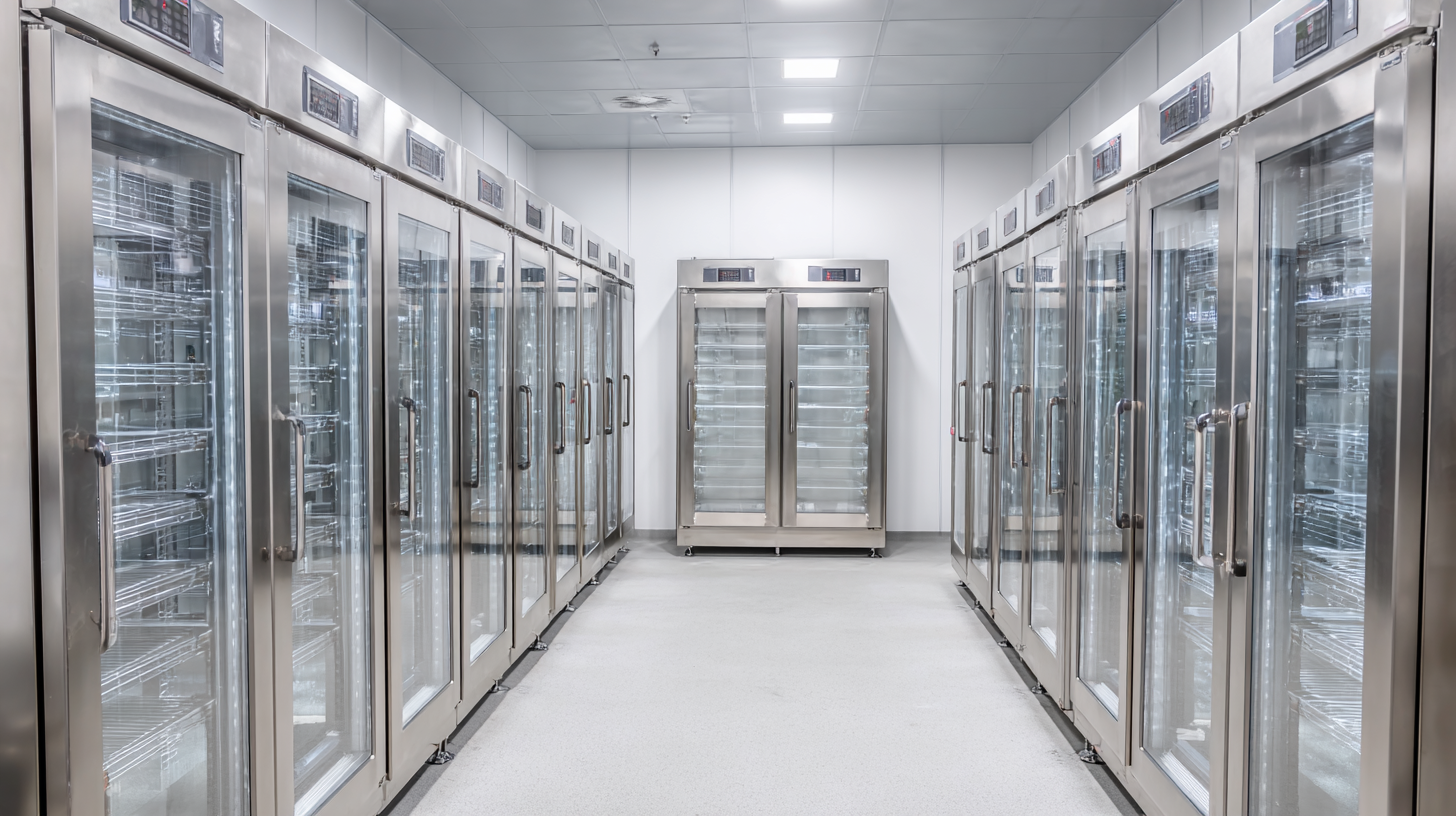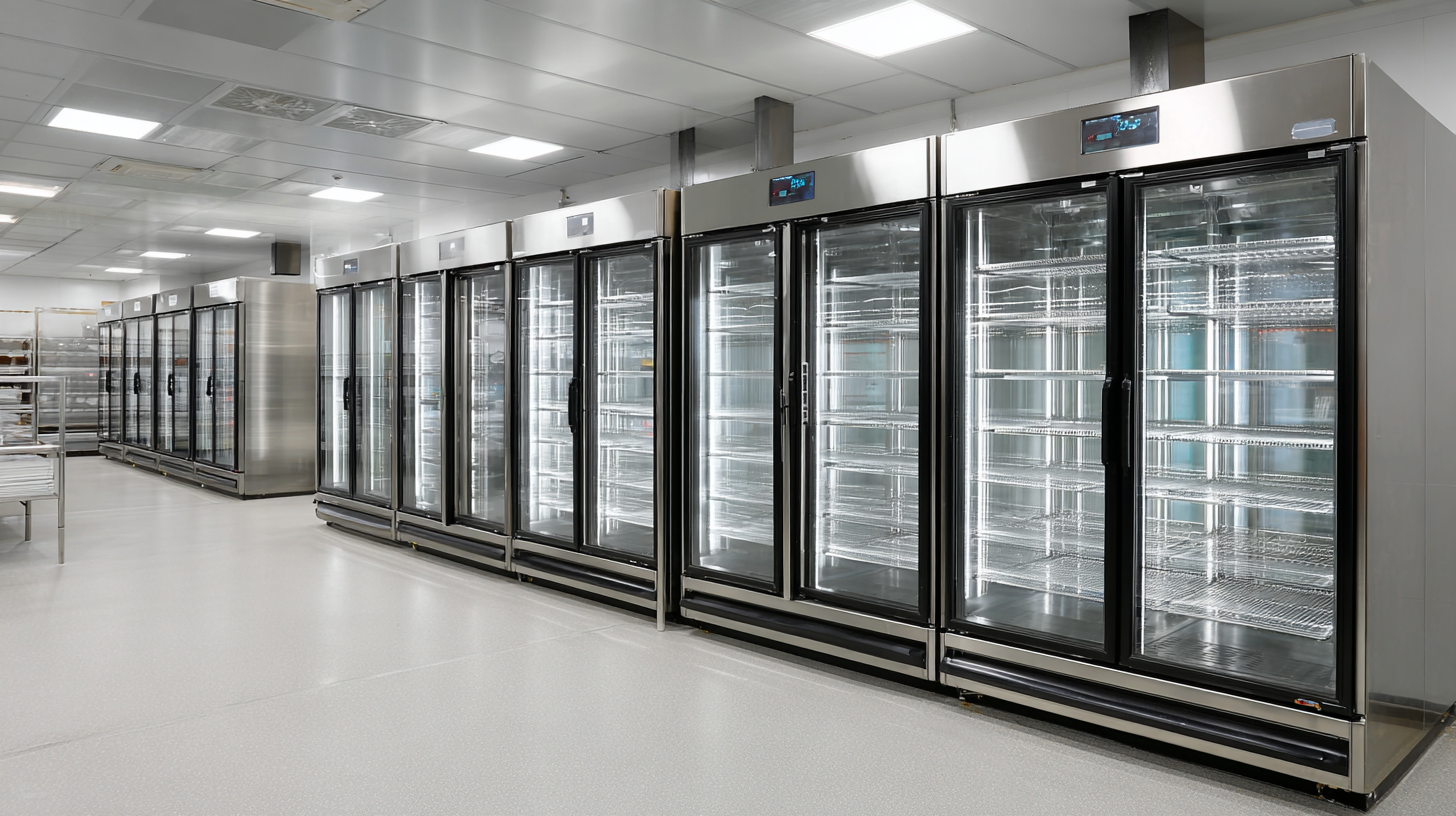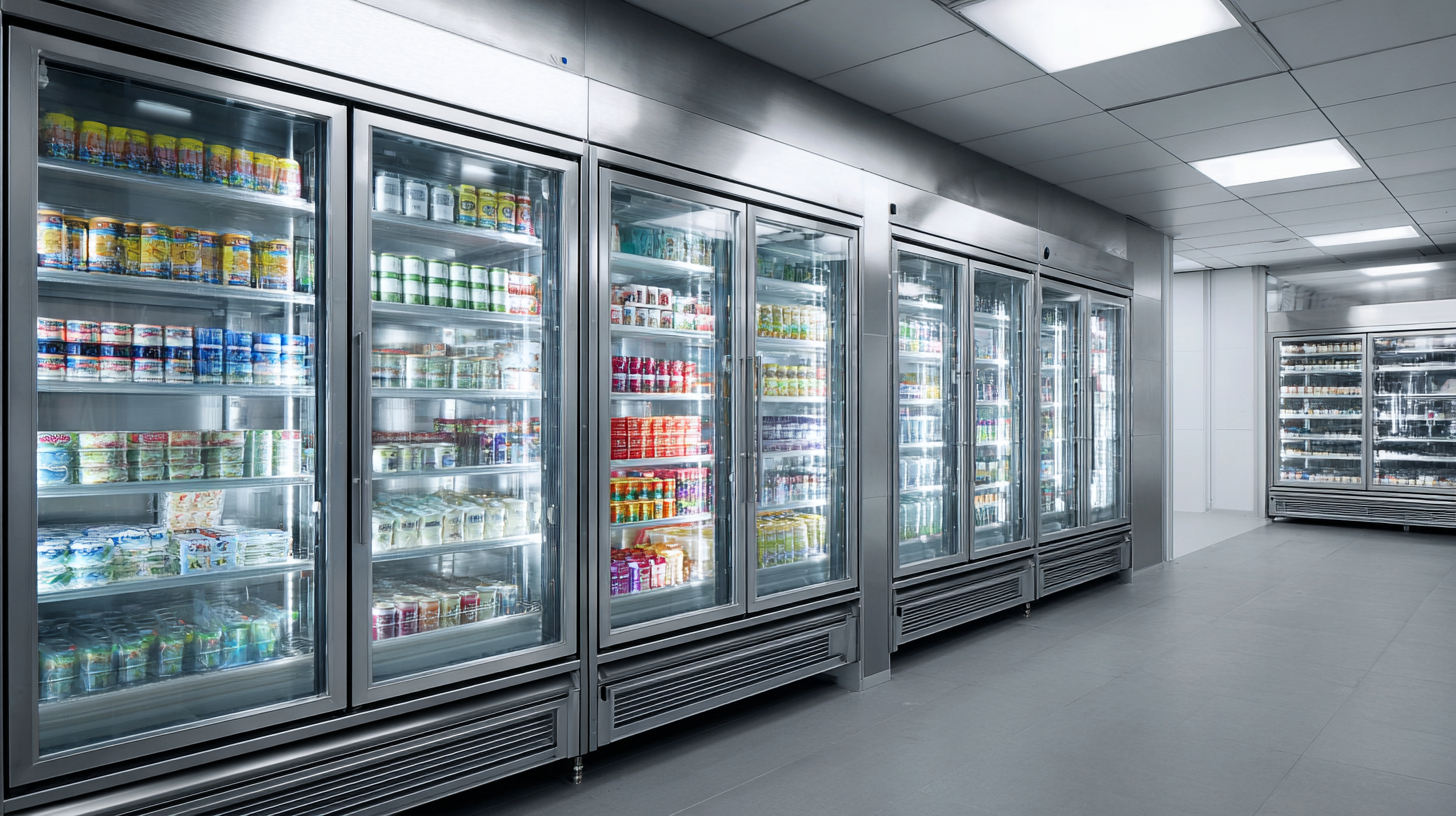- +86-13631182173
- sales@zsqeelin.com
- 8613631182173
In the ever-evolving landscape of global procurement, the demand for efficient and cost-effective storage solutions is paramount, particularly when it comes to freezer cabinets. According to a recent report by MarketsandMarkets, the global market for commercial refrigeration is projected to reach USD 59.36 billion by 2025, with a significant portion attributable to the growing foodservice industry and the increasing need for cold storage. As businesses strive to maximize operational efficiency while minimizing costs, innovative alternatives to traditional freezer cabinets are gaining traction. These alternatives not only enhance energy efficiency but also promote sustainability, catering to the rising consumer expectations for eco-friendly practices. In this blog, we will explore the benefits of these innovative solutions and their significance in meeting the dynamic needs of global procurement processes.

When considering freezer cabinets for global procurement, it’s essential to identify key features that meet diverse operational needs. Modern freezer cabinets must prioritize efficiency, sustainability, and advanced technology. Features such as energy-efficient insulation, customizable temperatures, and smart technology integration can transform how businesses manage their frozen inventory. The rise of artificial intelligence in supply chain management has introduced innovative tools that enable precise inventory tracking, optimize storage conditions, and minimize energy consumption, ultimately enhancing operational efficiency.
AI is particularly impactful in optimizing the cold supply chain, allowing for real-time monitoring and analytics that lead to smarter decision-making. By harnessing digital tools, organizations can analyze data patterns to reduce waste and improve stock replenishment processes. This approach not only supports environmental sustainability through reduced spoilage but also identifies growth opportunities in the market by responding swiftly to consumer trends and demands. As companies seek innovative alternatives in their procurement strategies, focusing on these key features will be vital in navigating the complexities of global supply chains effectively.

In today's rapidly evolving market, the quest for cost-effective freezer solutions is more pertinent than ever, especially for businesses addressing global procurement requirements. While traditional freezer cabinets have dominated the landscape, innovative alternatives are emerging that promise both efficiency and substantial cost savings. For instance, portable power stations are gaining traction, with the market size expected to reach USD 786.2 million by 2024, growing at a robust CAGR of 9.11%. This shift demonstrates a notable trend towards more versatile and mobile storage options that cater to varying operational needs.
Moreover, the ongoing advancements in technologies such as HPTLC provide compelling evidence for alternative methodologies across different sectors. This cost-effective approach is revolutionizing pesticide residue detection, demonstrating that innovative solutions can be equally, if not more, efficient than traditional methods like HPLC. Such developments highlight the broader implications of adopting alternative technologies, not just in freezer solutions, but across various applications looking to minimize costs without sacrificing quality. In exploring these innovative alternatives, businesses can better align their strategies with sustainability and efficiency goals, crucial in today’s competitive environment.

Sustainability has become a crucial consideration in sourcing freezer cabinets for businesses. A recent market analysis by Grand View Research estimates that the global refrigerated display cases market will reach $13.5 billion by 2025, with a growing demand for eco-friendly options. Companies are increasingly prioritizing energy efficiency and recyclable materials, making sustainable practices not just a trend but a necessity for long-term growth.
When considering freezer cabinets, businesses should look for energy-efficient appliances rated by Energy Star, as these can reduce energy consumption by up to 30%. Furthermore, sourcing from manufacturers who emphasize sustainable materials can significantly lower the carbon footprint of operations. According to the U.S. Department of Energy, switching to environmentally friendly refrigerants can help decrease greenhouse gas emissions by nearly 90%, showcasing the importance of making informed choices.
Tips for sustainable sourcing include evaluating the lifecycle impact of the cabinets, from production to disposal, and opting for suppliers who implement responsible sourcing practices. Additionally, collaborating with manufacturers who prioritize local sourcing can minimize transportation emissions, aligning with a business’s sustainability goals. By integrating these practices into procurement strategies, businesses can enhance their operational efficiency while contributing positively to the environment.
The landscape of freezer storage options is rapidly evolving, driven by technological innovations that enhance efficiency and sustainability. Recent reports from industry analysts reveal that energy-efficient freezer cabinets can reduce power consumption by up to 40%, aligning with the growing demand for environmentally-friendly solutions in global procurement. Additionally, smart freezer technologies, such as IoT (Internet of Things) integrations, are becoming prevalent, allowing users to monitor and adjust temperatures remotely, thus preventing spoilage and reducing waste, which has been identified as a critical challenge in the supply chain.
When evaluating innovative alternatives, consider how these advancements can streamline your operations. For example, opt for models that offer adaptive cooling technologies which adjust to ambient temperature changes. This not only helps in maintaining optimal storage conditions but also contributes to energy savings. Another critical aspect to explore is the potential of modular freezer systems, which provide flexibility in storage capacity and arrangement, catering to varying load demands.
Tip: Regularly assess the total cost of ownership when selecting new freezer solutions. While initial costs may vary, long-term savings through reduced energy usage and decreased food waste can significantly impact your budget. Furthermore, training staff on the latest technology can enhance usage efficiency and prolong the lifespan of these innovations.
When it comes to global procurement needs, selecting the right freezer cabinet can significantly impact efficiency and cost-effectiveness. A recent market report by Mordor Intelligence indicates that the global market for freezer cabinets is projected to grow at a CAGR of 4.5% from 2021 to 2026, driven by an increasing demand for frozen food products and advancements in refrigeration technologies. This growth has prompted businesses to closely examine the offerings of leading freezer brands to find the best balance between performance and pricing.
According to a comparative study by Technavio, three brands consistently rank at the top: True Manufacturing, Arctic Circle, and Turbo Air. True Manufacturing emphasizes energy efficiency and durability, boasting an average life span of over 15 years, making it a solid option for long-term investment. Arctic Circle, on the other hand, is recognized for its innovative designs tailored for high-volume users, reporting a 20% increase in operational efficiency compared to traditional models. Turbo Air focuses on eco-friendly refrigerants, aligning well with the industry's move toward sustainability, as highlighted in a report by the Environmental Protection Agency, which suggests that businesses adopting such products can reduce energy consumption by up to 30%.
